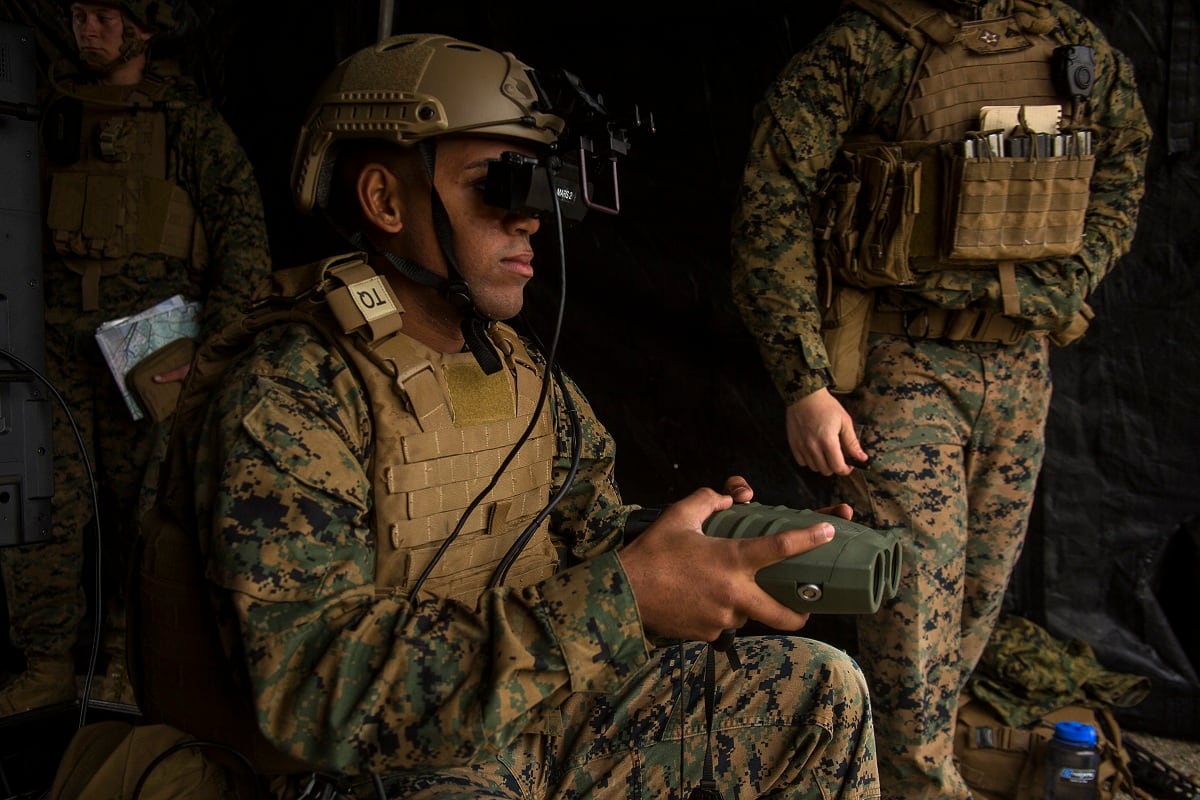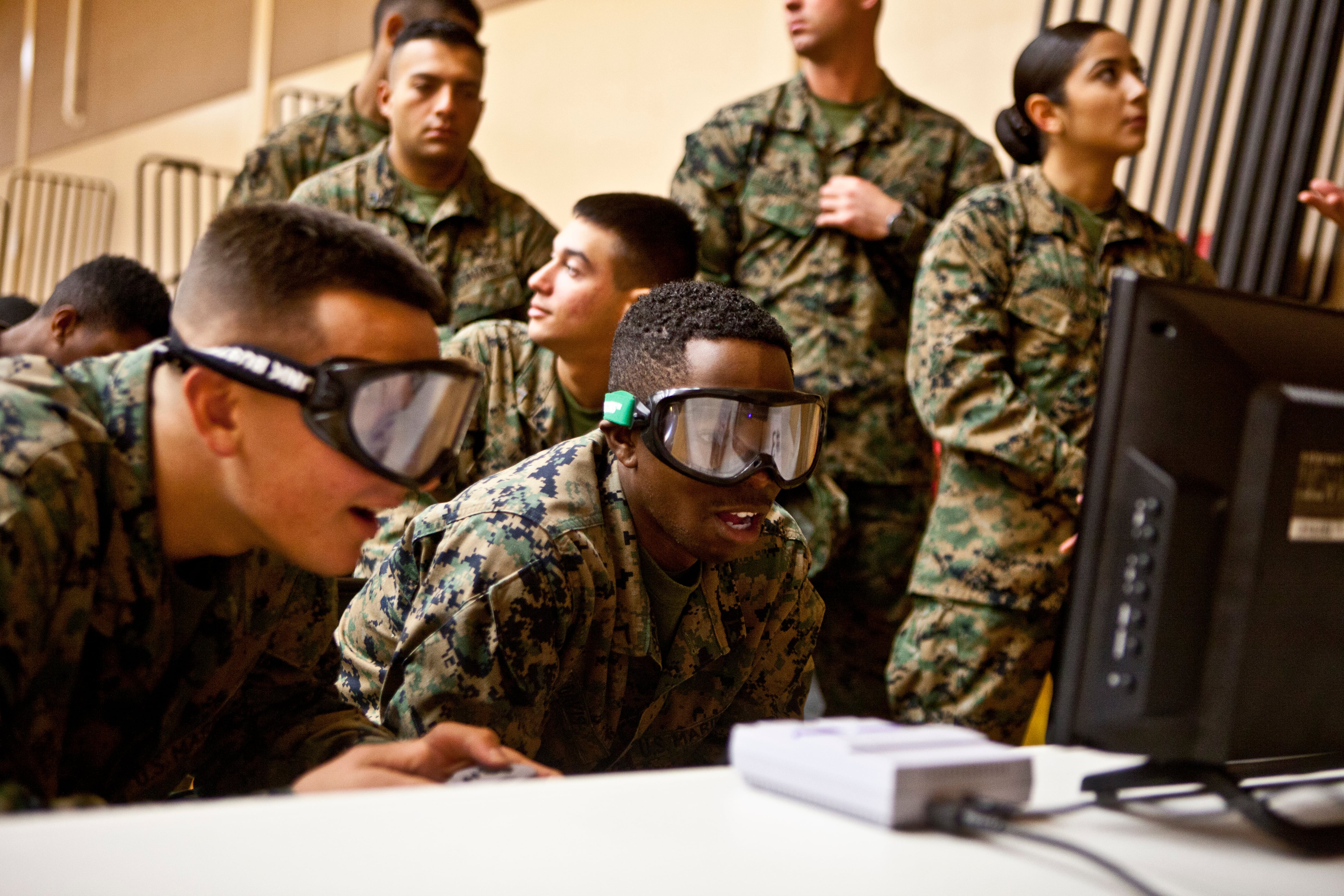Former Commandant of the Marine Corps Gen. Charles Krulak authorized Marines to play a select list of approved computer video games to help bolster decision-making and warfighting.
One of those approved games was a special version of Doom that was developed to help train Marines, according to the Marine Corps history division.
Doom is a popular first-person shooter game developed by id Software in 1993. Several versions of the game have been released throughout the years, with the latest version titled Doom VFR appearing on store shelves in 2017.
Krulak encouraged Marines to play video games to help prepare for combat, and he approved the use of select games to be played on government computers.
In a Marine order published in 1997 said that the “use of technological innovations, such as personal computer (PC)-based wargames, provide great potential for Marines to develop decision making skills, particularly when live training time and opportunities are limited.”
The 1997 order, signed by Krulak, was designed to urge Marines to participate in daily military thinking and decision-making exercises.
“Commanders may now authorize the use of government computers for the games listed in the PC-based Wargames Catalog,” the order reads.
RELATED

The Marine Corps Modeling and Simulation Management Office was tasked with identifying and maintaining a list of approved video games.
Marines were also authorized to write to Marine Corps Combat Development Command to seek approval for new games to be added to the list, according to the Marine order.
“Decisions made in war must frequently be made under physical and emotional duress. Our mental exercises in peacetime should replicate some of the same conditions,” the order reads.
While Marines may no longer be slaying monsters in Doom to prepare for their next deployment, the Corps is pushing heavy on virtual simulators.
One such device is a simple pair of virtual reality googles that serves as a mobile fires support trainer to help keep air tactical controllers and Joint Fires Observers fresh on their skills.
Marines and units don’t always have the time to reserve ranges, virtual reality simulators can help reduce the work burden while also being cost effective.
Another system being looked at by the Corps is the gunfighter gym. These systems are ultra realistic marksmanship simulators that can change scenarios, terrain, environment, or day and night.
Marine squads can be pitted against low tech enemies or thrown though the gauntlet against a technological superior enemy with night vision and thermal capabilities.
The system has a recording function so a squad can playback their performance and help them adjust or work through tactical solutions.
“Since success in combat depends in large part on our collective capability to make and execute effective military decisions under physical and emotional stress, it is imperative that all Marines make every effort to exercise and develop their decision making abilities,” the 1997 Marine order reads.
Krulak served as the 31st commandant from 1995 to 1999. He helped pushed experimental exercises and envisioned a more tech adept Marine force using computers and drones on the battlefield.
Shawn Snow is the senior reporter for Marine Corps Times and a Marine Corps veteran.




